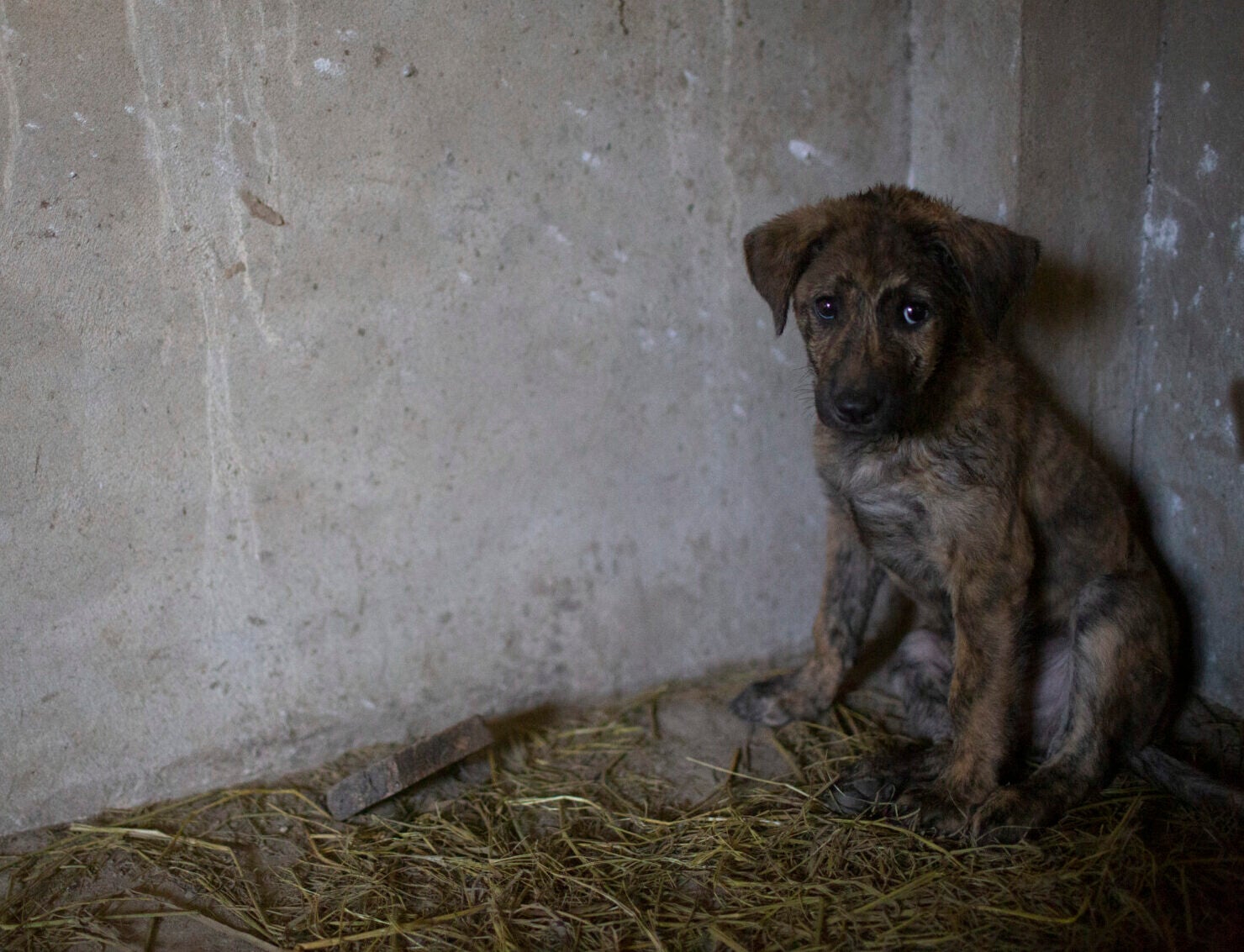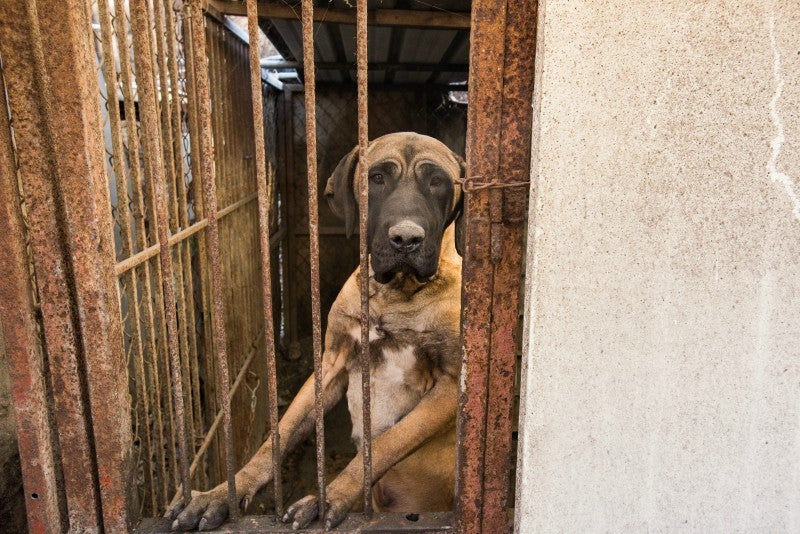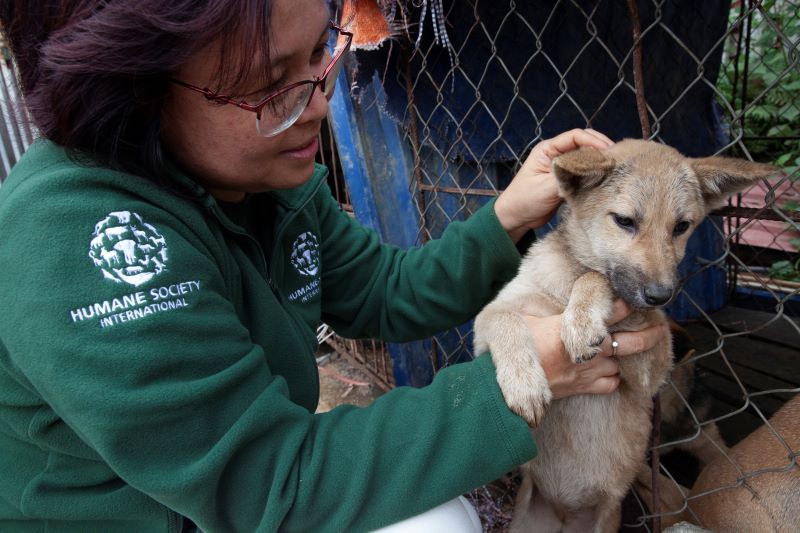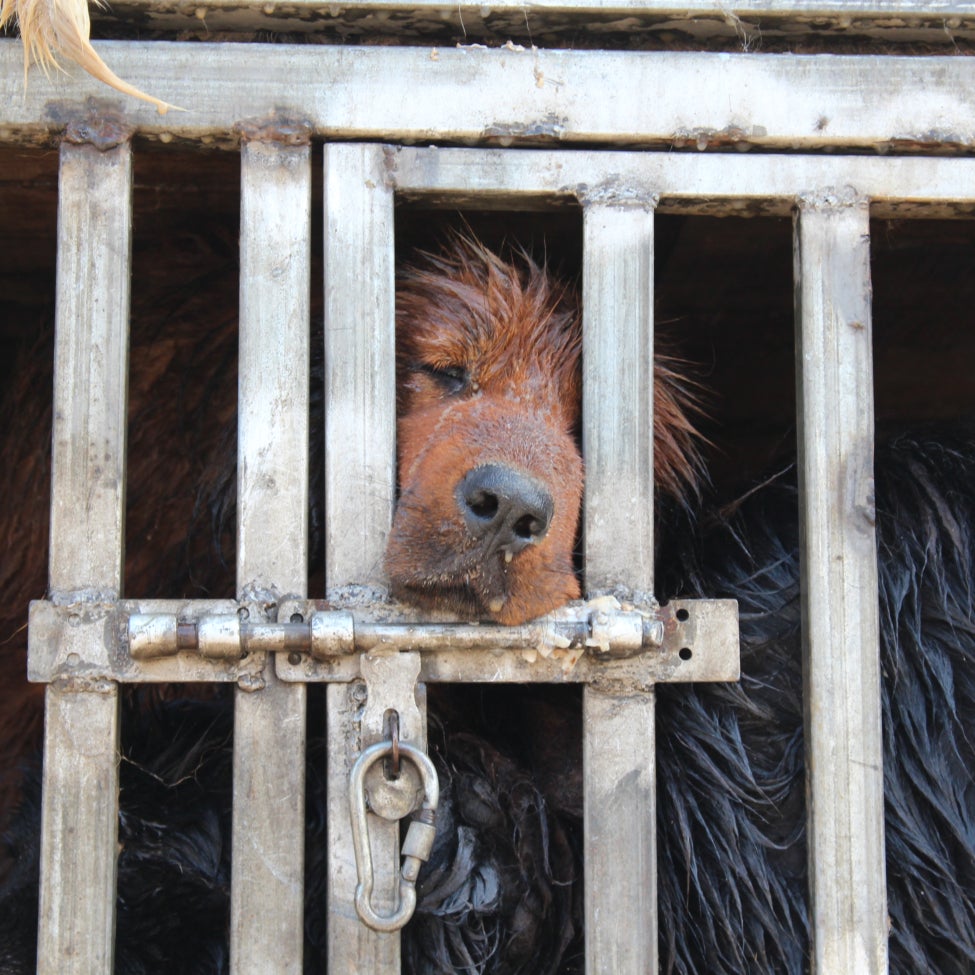Overview
Across Asia, millions of dogs and cats are brutally killed for meat. HSI campaigns all year round in China, South Korea, Indonesia and Viet Nam to end the cruelty. In most countries, dogs are stolen pets or grabbed from the streets. In South Korea, dogs are farmed in appalling conditions.
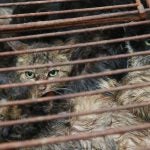
30M & 10M
Dogs and cats, respectively, killed annually for human consumption across Asia
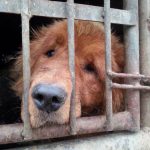
1,000+
Terrified dogs crammed onto a single trader’s truck
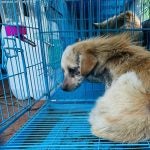
1,000s
Dog meat farms in South Korea
The Issue
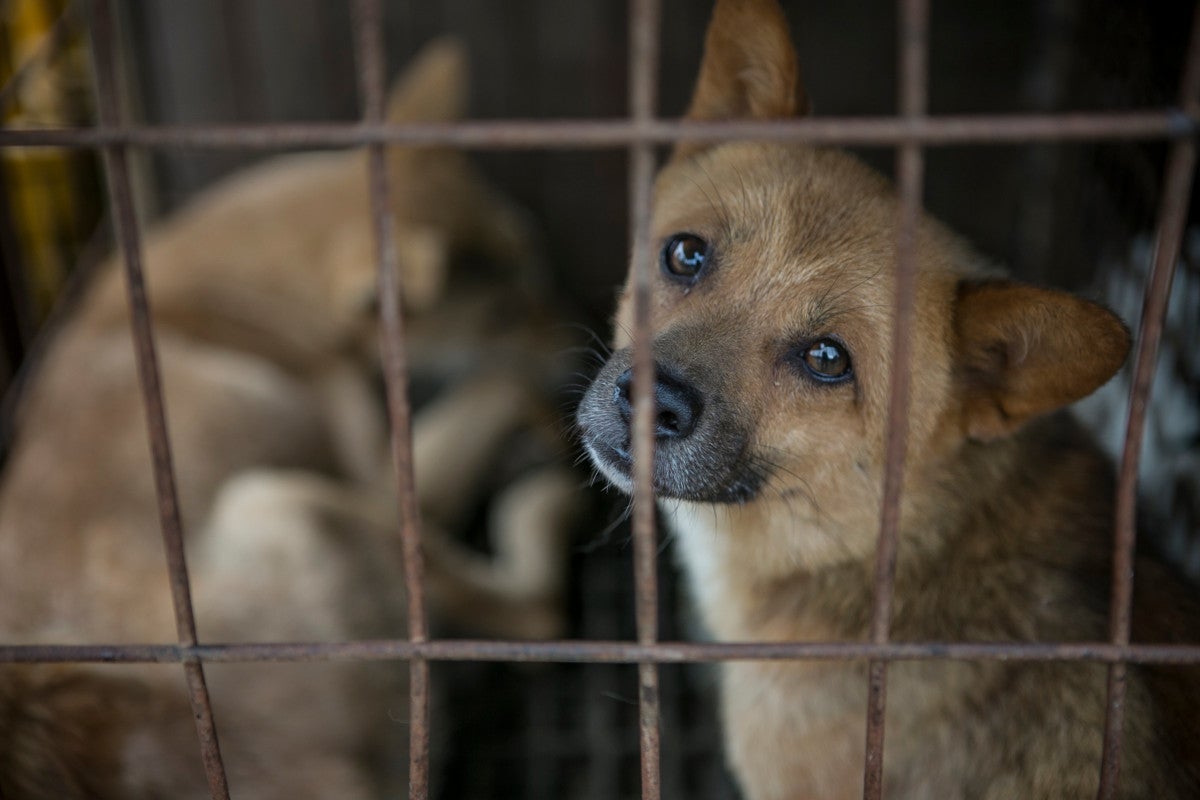
Dog and cat traders snatch animals from the streets, steal pets from backyards or buy them from owners. They are crammed together on the back of trucks and driven for days—sick, hungry, thirsty, injured and afraid—then beaten to death or hanged in slaughterhouses or markets. In South Korea, dogs are bred in barren cages, without proper food, water or protection from the elements. Most people across Asia don’t eat dog or cat meat, and HSI is working with local groups to lobby for change.
Dog meat trade facts:
- Our Chinese partner activists work all year round to rescue thousands of dogs and cats from the meat trade. Whether crammed onto trucks—where they endure dehydration, starvation, broken limbs, shock and disease—or huddled in the corner of a filthy slaughterhouse, our activist partners are these animals’ last hope.
- In South Korea, dogs are killed by electrocution; elsewhere, they are usually bludgeoned, hanged or more rarely, boiled alive.
- Across Asia, there is increasingly vocal local opposition to this trade due to cruelty, criminality and human health concerns.
- Dog meat is mainly, but not exclusively, eaten by older, male consumers under the misapprehension of health benefits.
- In South Korea and China, most people don’t eat dogs, but there are hot spots and times of year when and where consumption increases. In South Korea, more dog meat is consumed during Bok Nal (the hottest days in summer) than at other times of the year. In China, there is increased consumption in “hotspot” provinces such as Guangdong, Yunnan, Guangxi (where the infamous Yulin dog meat festival takes place), Jilin and Liaoning.
- The World Health Organization warns that the trade, slaughter and consumption of dogs poses human health risks from trichinellosis, cholera and rabies.
- Dog meat bans exist in—among others—Hong Kong, Taiwan, Thailand and Singapore, and most recently South Korea passed a law to ban the dog meat industry by 2027.
Urge Viet Nam to ban the dog and cat meat trades
Call to ban the trafficking of dogs and cats throughout Viet Nam to supply markets, slaughterhouses and restaurants
